A source S emitting sound of 300Hz is fixed on block A which is attache to free end of a spring SA as shown in figure. The detector D fixed on block B attached to free end of spring SB detects this sound. The blocks A and B simultaneously displaced towards each other thrugh a distance of 2.0m and then left to vibrate. If the product of maximum and minimum freuquencies of sound detected by D is K+104sec−2. Find K. Given the vibrational frequencies of each block is 5/πHz. speed of sound in air =300m/s

The correct Answer is:9
Step by step video & image solution for A source S emitting sound of 300 Hz is fixed on block A which is attache to free end of a spring S_(A) as shown in figure. The detector D fixed on block B attached to free end of spring S_(B) detects this sound. The blocks A and B simultaneously displaced towards each other thrugh a distance of 2.0m and then left to vibrate. If the product of maximum and minimum freuquencies of sound detected by D is K + 10^(4) sec^(-2). Find K. Given the vibrational frequencies of each block is 5//pi Hz. speed of sound in air = 300 m//s by Physics experts to help you in doubts & scoring excellent marks in Class 11 exams.
Updated on:21/07/2023Topper's Solved these Questions
- SOUND WAVESBOOK - RESONANCE ENGLISHCHAPTER - SOUND WAVESEXERCISE - Exercise- 2 PART - III
19 Videos
- SOUND WAVESBOOK - RESONANCE ENGLISHCHAPTER - SOUND WAVESEXERCISE - Exercise- 2 PART - IV
8 Videos
- SOUND WAVESBOOK - RESONANCE ENGLISHCHAPTER - SOUND WAVESEXERCISE - Exercise- 2 PART - I
24 Videos
- SIMPLE HARMONIC MOTIONBOOK - RESONANCE ENGLISHCHAPTER - SIMPLE HARMONIC MOTIONEXERCISE - Exercise
28 Videos
- STRING WAVESBOOK - RESONANCE ENGLISHCHAPTER - STRING WAVESEXERCISE - Exercise
32 Videos
Similar Questions

A source S emitting sound of 300 Hz is fixed of block A which is attached to free end of a spring SA as shown in the figure. The detector D fixed on block B attached to the free end of spring SB detects this sound.
The blocks A and B are simultaneously displaced towards each other through of 1.0 m and then left to vibrate. Find the maximum and minimum frequencies of sound detected by D if the vibrational frequency of each block is 2 Hz (velocity of sound is 340 m/s).
View SolutionA blocked of mass m is attached with two strings as shown in figure .Draw the free body diagram of the block.
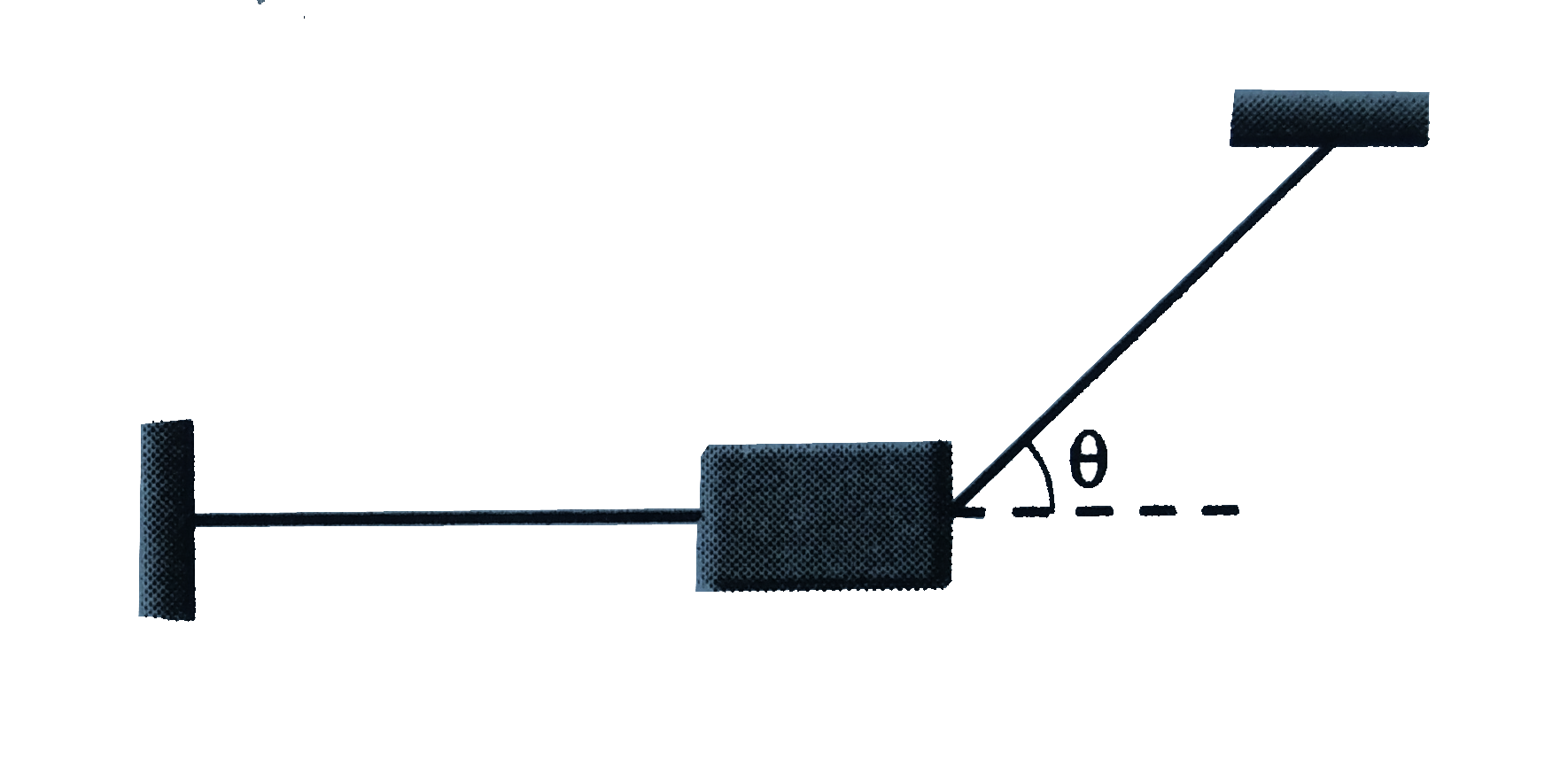
View SolutionA block of mass m is attached with two strings as shown in figure .Draw the free body diagram of the block.

View Solution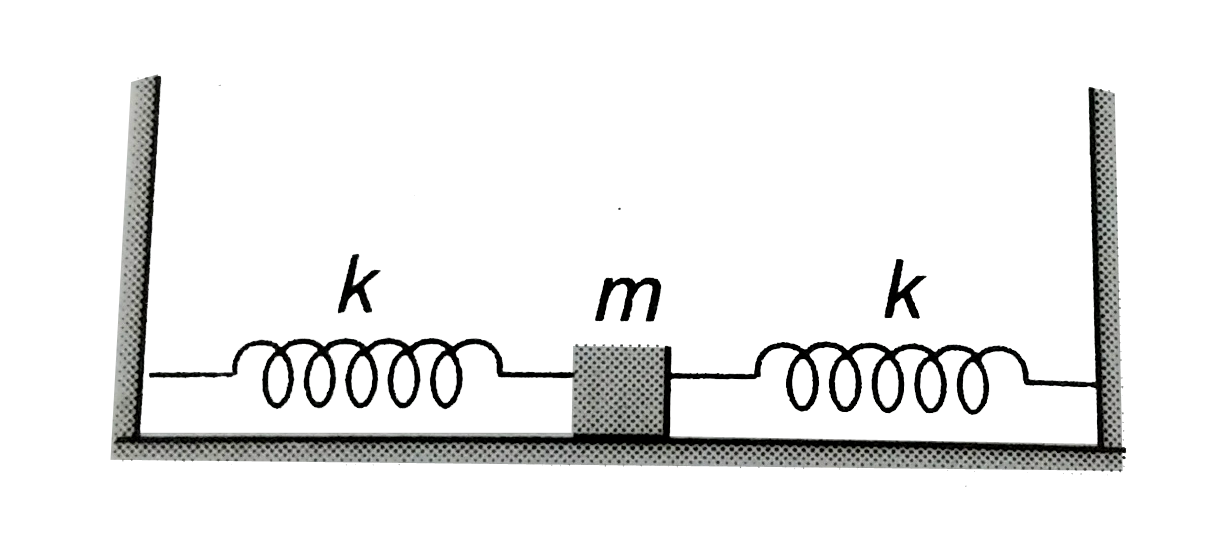
A block of mass m is attached to two unstretched springs of spring constant k, each as shown. The block is displaced towards right through a distance x and is released The speed of the block as it passes through the mean position will be
View SolutionA block of mass m is attached to two unstretched springs of spring constants k1andk2 as shown in figure. The block is displaced towards right through a distance x and is released. Find the speed of the block as it passes through the mean position shown.
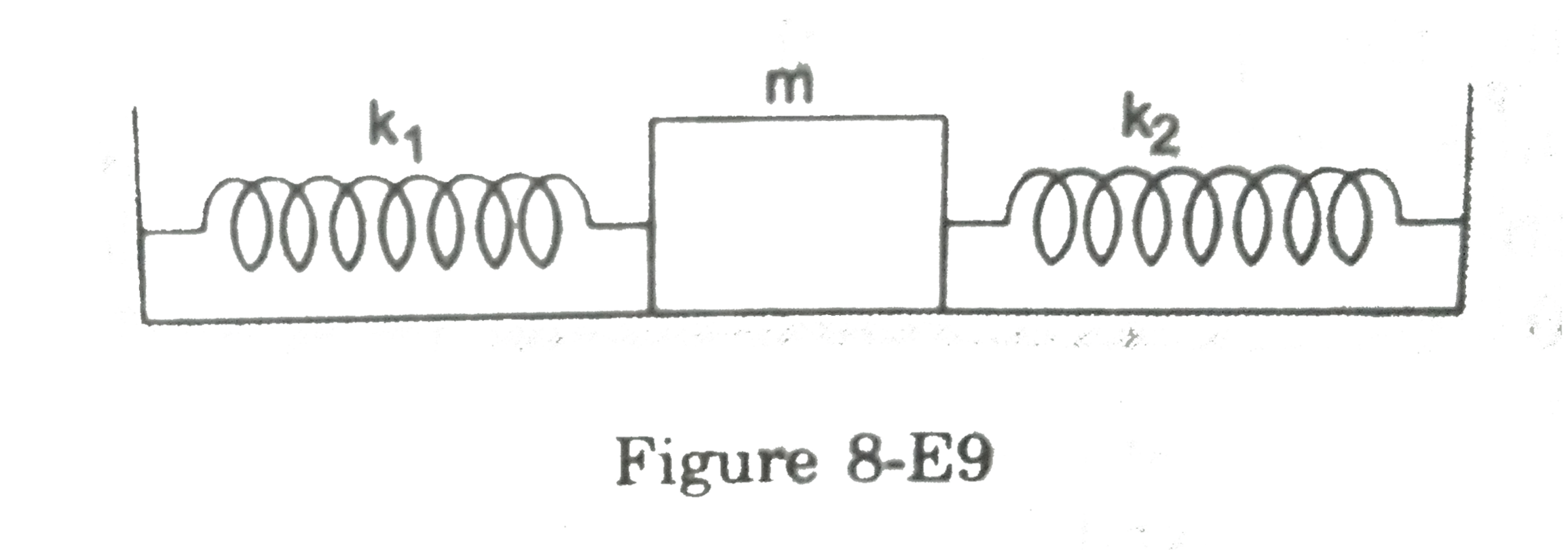
View SolutionA block of mass m is attached to two unstretched springs of springs constant k1 and k2 as shown in figure. The block is displaced towards right through a distance x and is released. Find the speed of the block as it passes through the mean position shown.
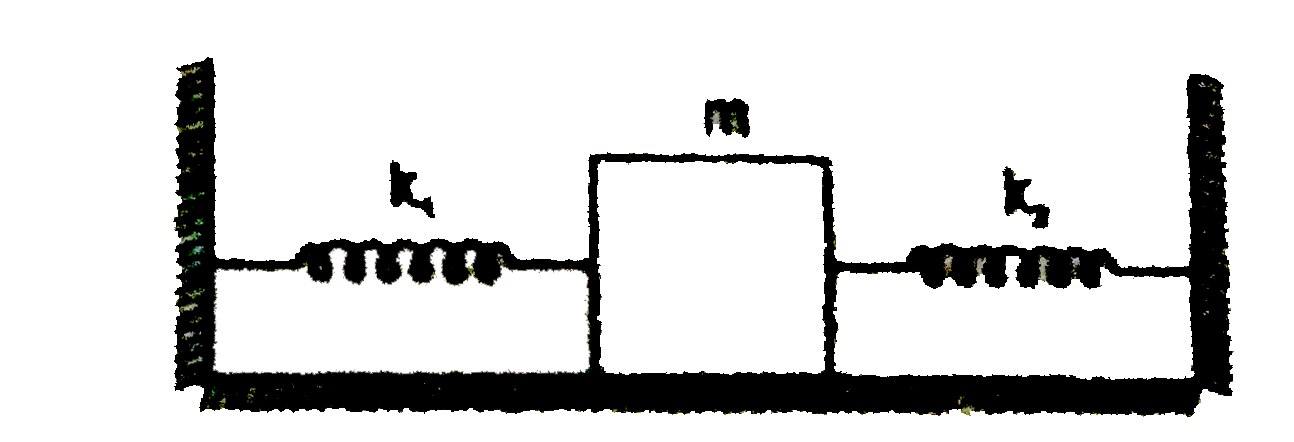
View SolutionA block of mass m is attached to four unstretched massless springs of spring constant k1andk2 as shown in figure. The block is displaced towards right through distance x and is released. Speed of block when displacement of block is x/2 from mean position is :
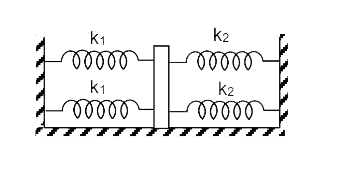
View SolutionTwo identical blocks A and B are connected with a spring of constant k as shown in ligure. If block B s moving rightward with speed V0 maximum extension of spring is
View SolutionBlock 'A' is placed ober the block 'B' as shown in the figure. Wedge is fixed and there is no friction. Between block 'B' and fixed inclined. Force of friction on the block 'A' is

View SolutionTwo identical springs of spring constant k are attached to a block of mass m and to fixed supports as shown in the figure. The time period of oscillation is
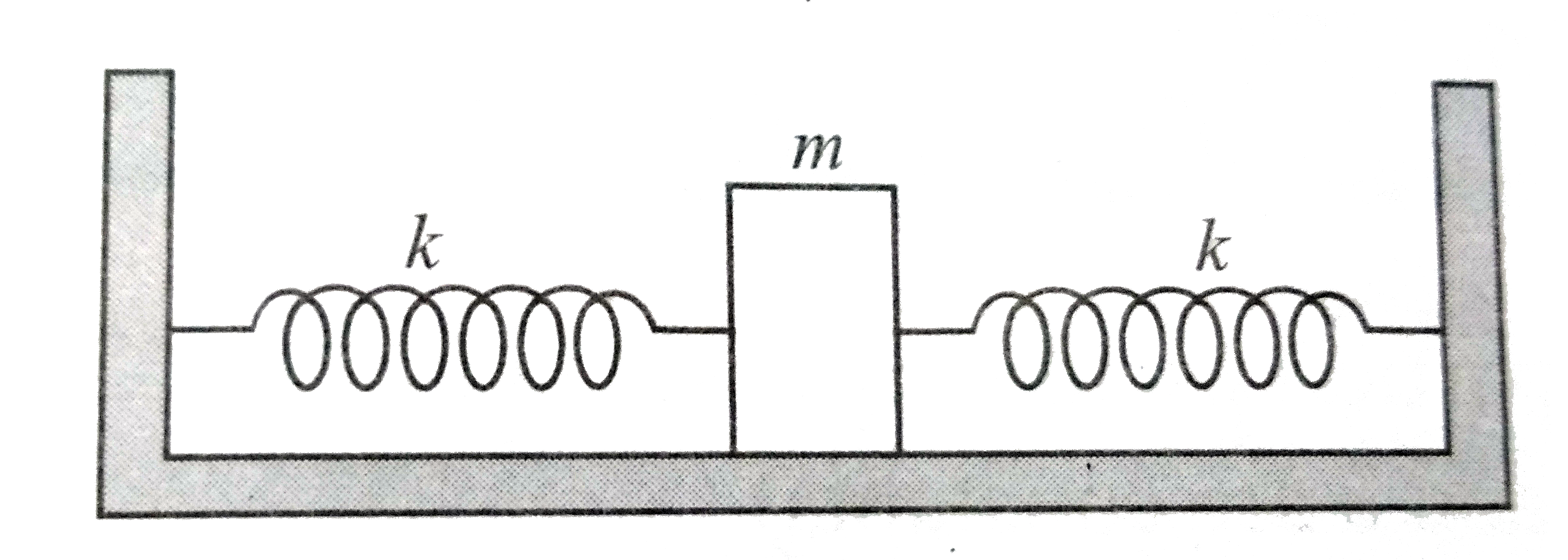
View Solution
